Italy’s election: How the economy is performing
Italy goes to the polls on Sunday in one of its most contentious votes in years.
The economy has become a key battleground for the main parties’ campaigns.
Italy’s economy has started to expand once again, but is still one of the worst performers of the countries in the eurozone.
The parties are battling to prove they can take Italy’s economy, industry and job market back to pre-crisis levels.
However, despite all the pre-election rhetoric, few Italians can really see what has improved since the economic crisis. The road to full recovery has been much harder than many expected.
High debt
Italian debt is now the second worst in Europe after Greece and has reached 132% of GDP.
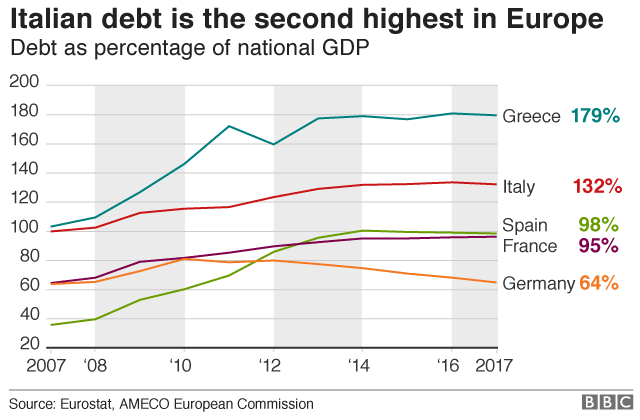
‘Made in Italy’
In the field of fashion, food and cars, Italy has had a reputation for excellence and it has exported these all over the world. The “Made in Italy” brand has been rejuvenated thanks to an increase in exports and international interest.
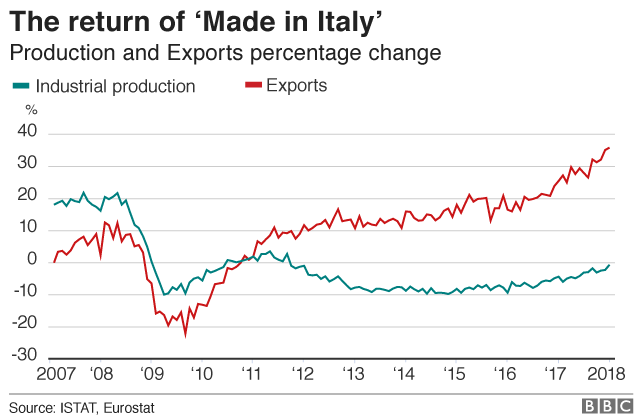
Unemployment
The level of part-time work means much lower job security compared with other European countries.
In Italy, this seems to have deepened the problem of unemployment – particularly in the southern regions where jobless rates are as high as 29%.
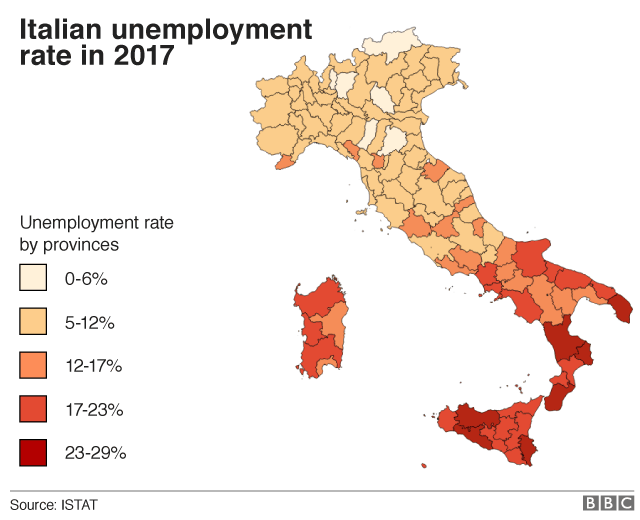
Increasing poverty
Although Italy presents itself as one of the top three European economies, high rates of unemployment have caused a steep rise in poverty.
The number of Italians at risk of poverty rose from three million in 2006 to 18 million – nearly a third of the entire population – in 2016.
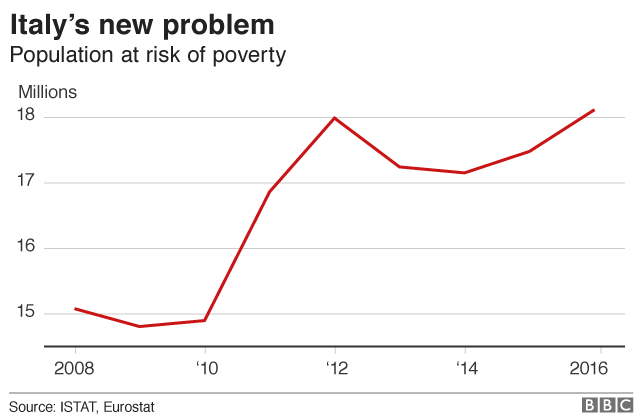
Battle against taxes
The top rate of income tax in Italy is one of the highest in Europe, well above the 39% average for top rates across the 28-members of the Union.
That’s why Silvio Berlusconi has started his own personal battle against high taxation levels and has promised to create a 23% “Flat Tax” for everyone
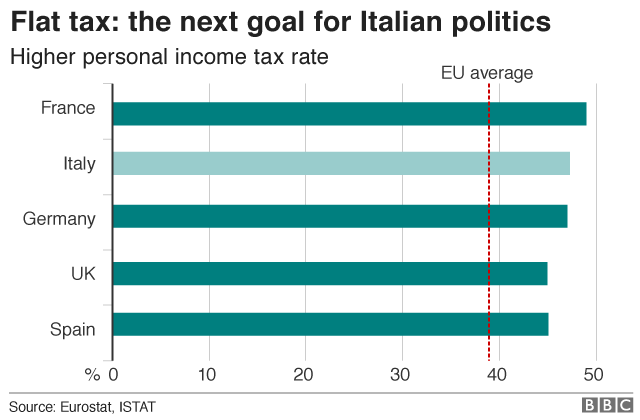
______________________________________________________________________
Source: BBC
Legal Notice: The information in this article is intended for information purposes only. It is not intended for professional information purposes specific to a person or an institution. Every institution has different requirements because of its own circumstances even though they bear a resemblance to each other. Consequently, it is your interest to consult on an expert before taking a decision based on information stated in this article and putting into practice. Neither MuhasebeNews nor related person or institutions are not responsible for any damages or losses that might occur in consequence of the use of the information in this article by private or formal, real or legal person and institutions.


























